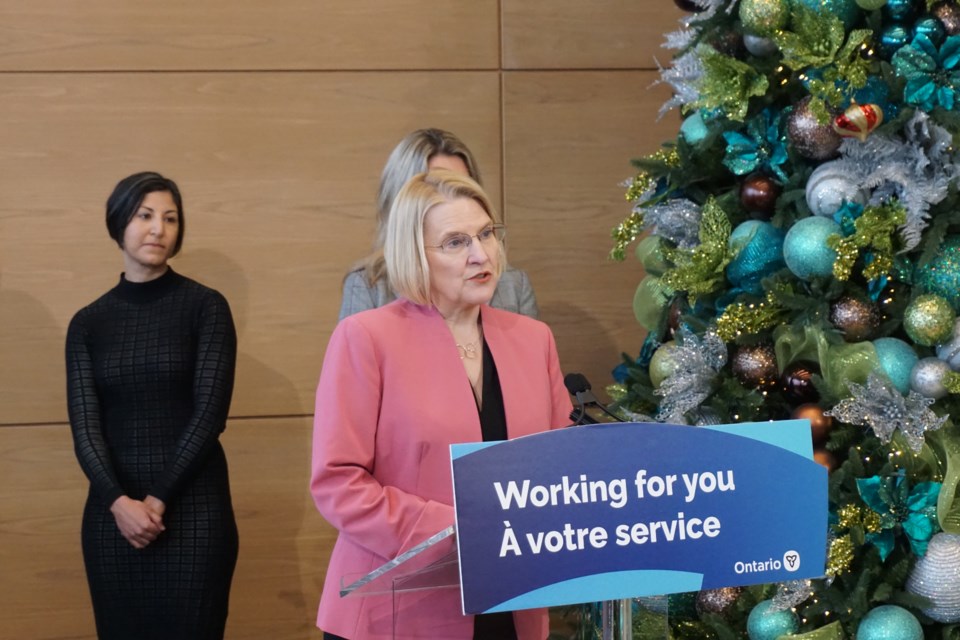Pledging to ensure patients get the care they need “close to home,” Ontario Health Minister Sylvia Jones unveiled plans to add 20 permanent, inpatient acute-care beds at Waypoint Centre for Mental Health Care Monday.
“It’s a great honour to come back to Waypoint,” Jones told staff and local politicians assembled in the Penetanguishene facility’s Atrium building.
“We’re adding capacity to meet demands. All Ontarians deserve to receive convenient care close to home, no matter where they live.”
Waypoint president and CEO Dr. Nadiya Sunderji said the hospital already had 20 permanent acute-care beds along with 14 temporary beds added during the height of the pandemic.
Now, those 14 beds will be marked as “permanent” with another six beds added to the unit.
“What a fantastic way to start the week,” Sunderji said. “This commitment supports the well-being of individuals in crisis and reflects our collective dedication to fostering a compassionate and healing environment for those in need in our communities."
The new unit will expand access to specialized urgent mental health and addictions services, making it faster and easier for people and their families to connect to care closer to home.
“By investing in a new inpatient acute care unit at Waypoint, our government is ensuring that people in the Georgian Bay region will have faster access to specialized mental health services and supports, when and where they need it most,” Jones said.
While construction is expected to begin in the new year following a tendering process, neither Jones nor Simoce North MPP Jill Dunlop had a dollar figure for how much the additional beds will cost.
But Jones said the move to add beds at Waypoint makes a lot of sense since the hospital has delivered top-notch specialized care for decades.
Georgian Bay General Hospital has also applied to the ministry to operate inpatient acute-care unit, which would be similar to one that exists at Orillia Soldiers’ Memorial Hospital.
Jones said her government continues to pour billions of dollars into healthcare, including 50 hospital projects in the next 10 years, and “provide Ontarians with the care they need when and where they need it.”
Dunlop said the move is an important one since mental health is the “cornerstone" of one’s overall well-being.
“This will enhance the well-being of many patients and their families,” Dunlop said. “This helps ensure timely and accessible care to individuals in crisis. We’re sending a clear message that mental health matters.”
And that’s something Yvette Brook is happy will become a reality, adding the new beds serve a vital community need.
“This funding is really good news, especially since we’re just coming through a pandemic that was tough for all of us, said Brook, who serves as executive director of the patient and client family council at Waypoint.
Brook said the additional beds should also help “lighten the load” on hospital emergency rooms, which for many now experiencing a mental health crisis serves as the main location to try to get help.
“This will improve lives and in some cases, it will save lives,” she said.
Tiny Township Mayor David Evans said any moves to strengthen the region’s healthcare offerings are good, given the ever-increasing populations each north Simcoe community is now experiencing.
“Obviously, we have a great deal of confidence in Waypoint,” Evans said. “They have the expertise.”



